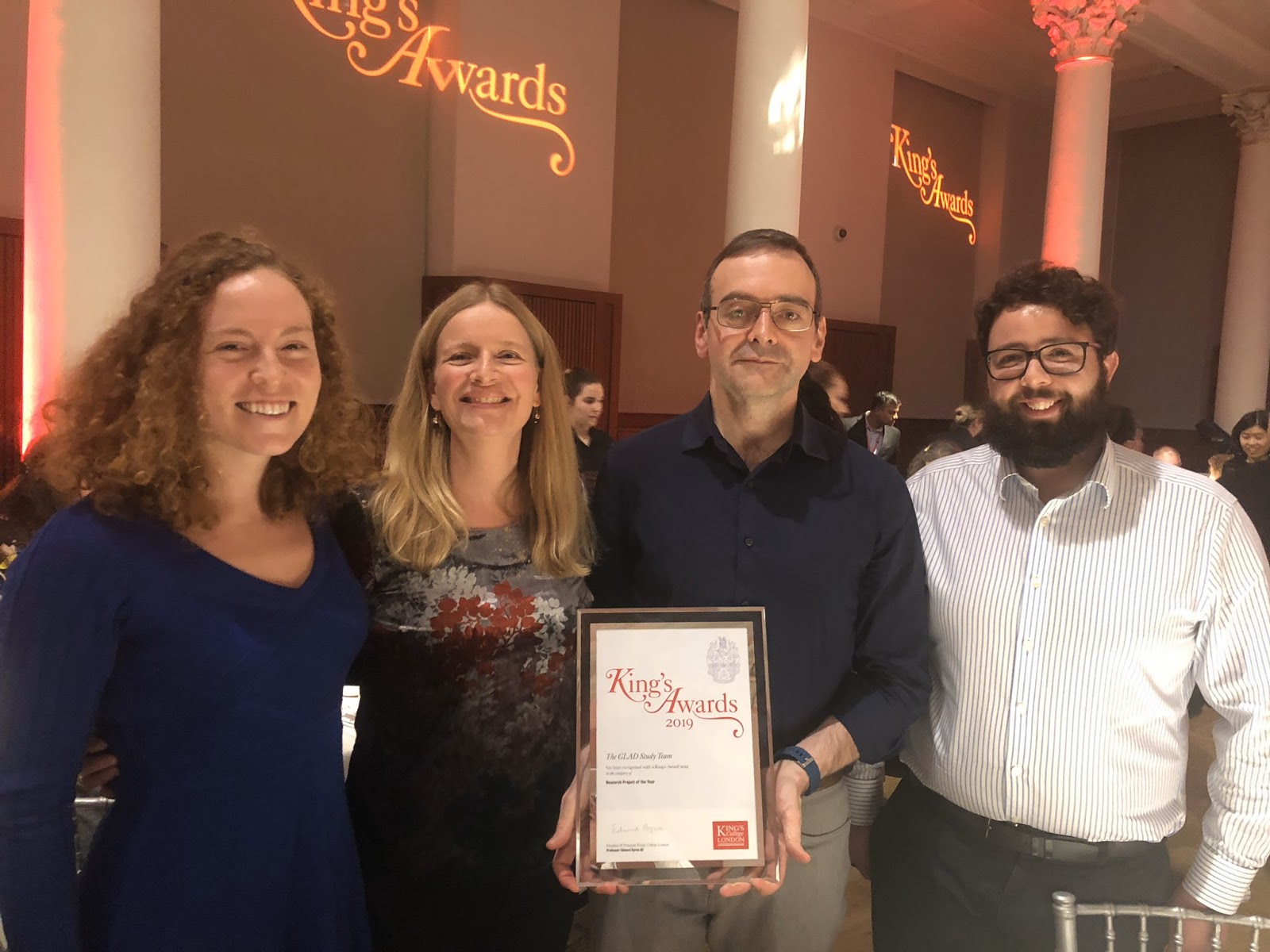In this post Yasmin and Molly discuss their experiences of doing a part-time PhD. They talk about what this includes as well as giving some of their top tips for those considering going down this route.
Who we are:
Yasmin: I am a Research Assistant running the Children of TEDS (CoTEDS) project . I manage study design, participant recruitment, data collection and data management. I also supervise undergraduate placement students who help a lot with these jobs. This has given me time over the past four years to also complete a part-time PhD. My thesis is focussed on understanding associations between parent and offspring anxiety and depression.
Molly: I am also a Research Assistant, running the Genetic Links to Anxiety and Depression (GLAD) Study, with similar responsibilities to Yasmin. I work with a team of other staff members and placement students to ensure that the study is running smoothly and implement any changes in study design or recruitment strategy. I have one day a week set aside to work on my PhD and switch over to writing and working with the GLAD data. My research is investigating phenotyping methods for anxiety and depression and the symptom presentation of these disorders.
How does a part-time PhD work?
In the UK, part-time students typically have at least six years to complete their PhD. It is possible to do it in less time if you have the right support. The minimum time allowance for part-time students at King’s is 4 years.
You may have set days of the week to do your research, or you may have to slot it in throughout the week alongside other jobs. Whichever way you do it, you must be disciplined in carving out time to focus on each job. You need supportive supervisors and line managers who understand your workload.
Multitasking comes with the territory as a part-time PhD student, and you continuously have to plan ahead. By the end, if all else fails, you can compete for a place in the Guinness World Book of Records for highest number of weekly schedules and to-do lists ever written (see photo for a typical desk scene).
Three advantages that we have enjoyed as part-time students*:
*Disclaimer – we both have Research Assistant jobs alongside our PhDs, so our experiences are specific to this. There are lots of other reasons why you might do a PhD part-time, for example if you are raising a family or have other commitments outside of academia
1. Getting experience with a wide range of tasks
Part-time PhD students may also be working, either full- or part-time. This gives you the opportunity to get hands-on experience with a wider variety of tasks and projects, and it can be a welcome distraction from PhD work.
2. Employability
Following on from advantage 1, your experience is a great CV booster. You will develop a broad range of skills and experience. If you’re an RA and PhD student, then you’ll have experience working closely with both research teams and academics at all stages of research. This is not only a bonus for your job applications, but can also give you more opportunities to network and build relationships with other academics that can help you with your career long term.
3. Financial stability
It’s no secret that a PhD stipend can be difficult to live on, particularly in London. It’s not all about the money, but having a salary helps negate some of the financial stress (and general stress, when it funds a nice holiday!).
“You will develop a broad range of skills and experience.”
Three challenges that we have faced as part-time students:
1. Time management
It can be difficult having so many jobs competing for your attention during a time of intense training and learning. Opportunities to procrastinate are vast, as you can always switch to a different job when one gets too difficult. It can be hard to save days each week to just do one job, but changing location can help to switch focus (Molly works from home on Fridays to create separation; working in the library can help as well). Set short and long-term goals to keep track of tasks and make sure that your PhD work progresses. Agree deadlines with your supervisor to create accountability for yourself. Remember that research is unpredictable and projects usually take longer than expected!
2. Self-motivation
This applies to all PhD students, but can be exacerbated with part-time PhD work. You may work more independently from other students (physically in terms of your desk, and temporally in terms of your timeframe). We have enjoyed having colleagues who aren’t PhD students, to provide a welcome break and change of perspective and pace! It is important to go to talks and events that inspire you and remind you of all the reasons why you chose to do both your job and PhD in the first place.
3. Not being able to do everything
As part-time students we can’t always do the things that full-time PhD students fill their time with, such as teaching, conference planning, research placements and reviewing papers. We sometimes miss events, training and seminars during working hours and don’t always have funding for courses or travel.
“It is important to go to talks and events that inspire you.”
Top tips for anyone starting a part-time PhD
1. Find ways to attend conferences, courses and training
Make sure you identify the key training needs that you require and keep an eye out for funding opportunities if you need them. This could be by identifying travel awards or funding pots, or negotiating with your supervisors for support. Keep in mind that conferences can be as important as training, as they allow you to network and get inspired by/learn from other researchers in your field. Also keep an eye out for events, training, career services, etc that are offered by your university and take advantage (lots of them are free, like these for King’s College London students).
2. Don’t compare your research output to other students
Every PhD is different and everyone is gaining their own unique set of skills and experiences. Keep in mind that your PhD is only the start of your career, not the end. If you want to learn a new skill but don’t have time during your PhD, then you can set that as a goal during a post-doc position or the next stage in your career.
3. Remember that you’re a student too, and look for what support is available to you
Ask for help. You may be able to work it out by yourself, but it can be faster to speak to someone else, even just to ask for advice on papers to read or resources to access. Building relationships with other PhD students or early career researchers is particularly helpful to build a support network and share knowledge of techniques or ideas. If you aren’t sure where to start, your supervisors can also help by introducing you to their other students.





